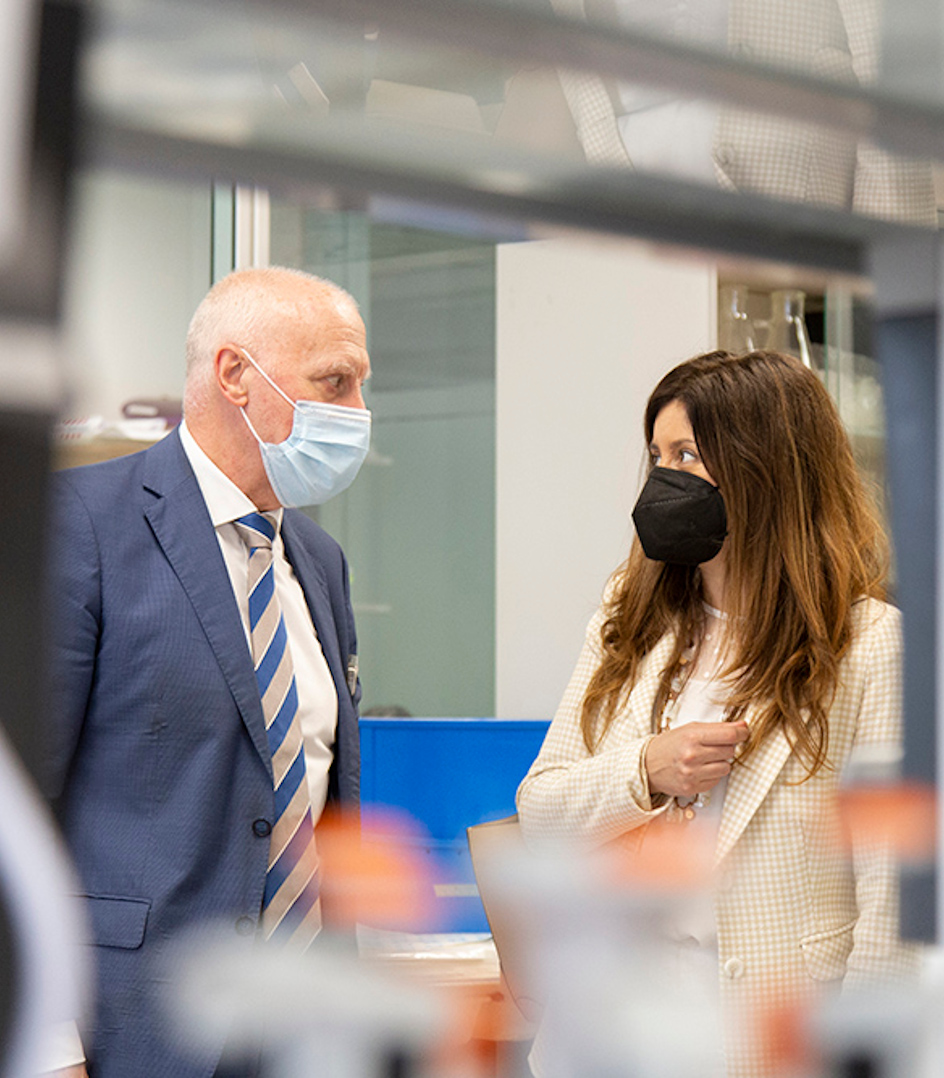
Izertis and Finba sign an agreement to generate innovation projects applied to biomedical technology
The Foundation for Biosanitary Research and Innovation of the Principality of Asturias (FINBA) and the technology multinational Izertis have presented this Tuesday a collaboration agreement, through which both entities join forces to generate medical-health research projects applied to technology. The agreement reached will in turn generate new avenues of research that are favoured by the use of enabling scientific specialties such as Artificial Intelligence (AI), Machine Learning or bioprinting.
This agreement establishes a collaboration framework for joint research, innovation and development activities. This alliance will also provide access to new joint funding opportunities, both in Spain and in Europe.
In this line, among the objectives highlighted in the agreement document is "the hybridisation of medical science and technology to solve problems of human health and quality of life, under a disciplinary approach, based on viable scientific ideas in their different disciplines".
Together, FINBA and ISPA currently coordinate biomedical and healthcare research in the Principality of Asturias. Their specific fields of action include the creation and implementation of projects related to personalised medicine, patient empowerment, digital innovation in the quality of services, and improving the efficiency of healthcare, among others.
This initiative is aimed at creating synergies that benefit knowledge itself, and that can in turn benefit the development and improvement of science, medicine and investment in our region
For its part, the digital transformation company is one of the recognised national players in clinical medical research, leading projects for the generation of personalised cellularised bio-implants, the prediction of degenerative diseases through the training of algorithms, or the pioneering system created in the HUCA through which the manufacture of the medical corset used as a treatment to correct idiopathic scoliosis is automated.
"The need to boost research, development and innovation in health has become evident over the last few decades. The different states and regions have designed and implemented policies that have led to the implementation of European, national and regional strategies for health R&D&I," said FINBA director Faustino Blanco.
"Development and innovation activities are usually led by several agents in the R&D&I ecosystems. Thus, on the one hand, there are companies in the healthcare sector, start-ups and technology-based companies, technology centres and universities. These organisations are particularly important for transferring the knowledge generated into products, processes or services to the market. Public-private collaboration also plays a crucial role in contributing to the creation and strengthening of our Development and Innovation Pillar, as well as in seeking solutions that enable the implementation of a comprehensive ecosystem for the health sector in Asturias. It is in this common space where FINBA and ISPA want to actively participate".
As Sheila Méndez, Digital Director of Izertis, announced after the presentation of the agreement, "this initiative is aimed at creating synergies that benefit knowledge itself, and that can in turn benefit the development and improvement of science, medicine and investment in our region. For us, the important thing is not the technology per se, but what can be achieved with it, which is why we are particularly excited about this agreement that we have just presented".

